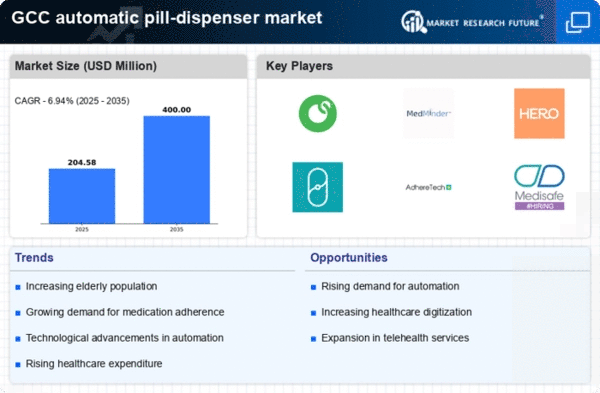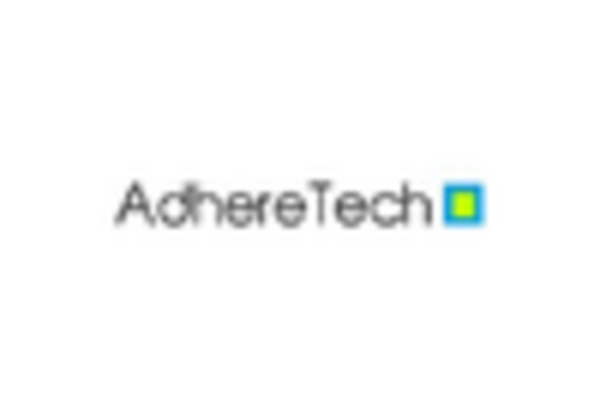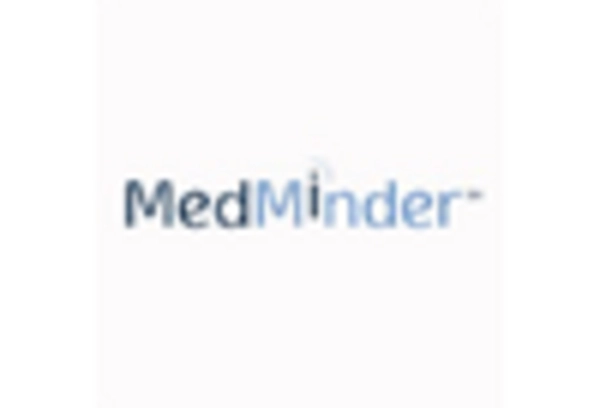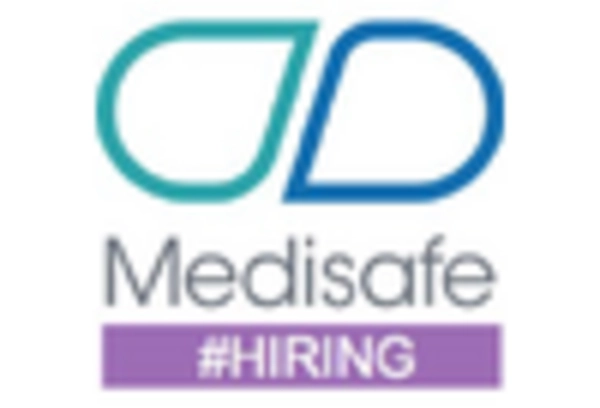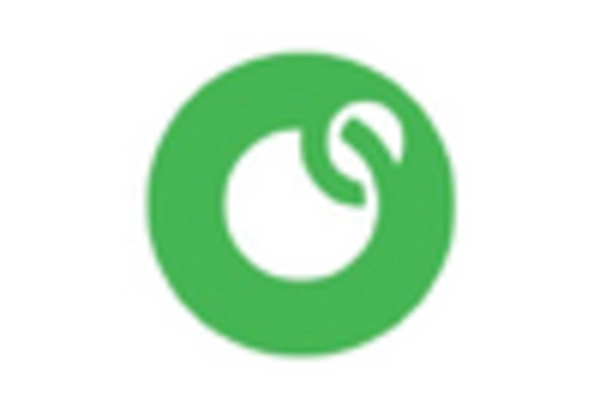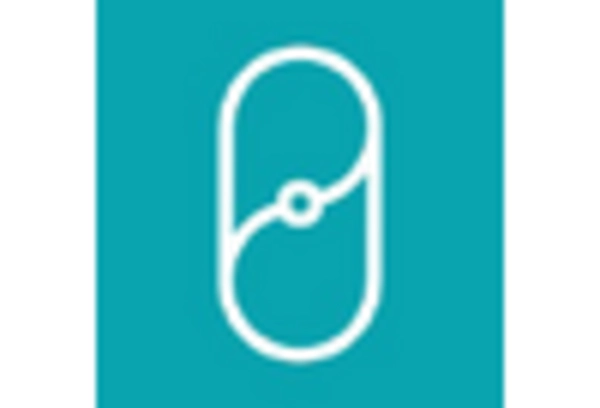Increasing Aging Population
The aging population in the GCC region is a crucial driver for the automatic pill-dispenser market. As the demographic shifts towards older age groups, the prevalence of chronic conditions such as diabetes and hypertension rises. This demographic is often reliant on multiple medications, making adherence to prescribed regimens challenging. Automatic pill dispensers offer a solution by simplifying medication management, thereby enhancing adherence rates. According to recent statistics, the population aged 65 and above in the GCC is projected to increase by over 30% by 2030. This trend indicates a growing demand for solutions that assist in medication management, positioning the automatic pill-dispenser market as a vital component in healthcare delivery for the elderly.
Rising Healthcare Expenditure
Healthcare expenditure in the GCC is on the rise, which is likely to bolster the automatic pill-dispenser market. Governments in the region are increasing their healthcare budgets to improve service delivery and patient care. In 2025, healthcare spending in the GCC is projected to reach $200 billion, reflecting a commitment to enhancing healthcare infrastructure. This increase in funding allows for the procurement of advanced medical devices, including automatic pill dispensers. As healthcare facilities invest in these technologies, the market is expected to expand, driven by the need for efficient medication management solutions that can reduce hospital readmissions and improve patient adherence.
Shift Towards Home Healthcare Solutions
The shift towards home healthcare solutions is a significant driver for the automatic pill-dispenser market. As patients increasingly prefer receiving care in the comfort of their homes, the demand for devices that support self-management of health conditions is growing. Automatic pill dispensers cater to this need by allowing patients to manage their medications independently, reducing the burden on healthcare facilities. The GCC region is witnessing a trend towards home-based care, with an estimated 20% increase in home healthcare services by 2025. This shift indicates a favorable environment for the automatic pill-dispenser market, as more individuals seek convenient and effective ways to manage their health at home.
Technological Integration in Healthcare
The integration of advanced technologies in healthcare is significantly influencing the automatic pill-dispenser market. Innovations such as IoT connectivity, mobile applications, and AI-driven analytics are enhancing the functionality of these dispensers. For instance, dispensers equipped with smart technology can send reminders to patients and alert caregivers about missed doses. This technological evolution is expected to drive market growth, as healthcare providers increasingly adopt these solutions to improve patient outcomes. The GCC region has seen a surge in digital health investments, with funding reaching approximately $500 million in 2025. This investment trend suggests a robust future for the automatic pill-dispenser market, as technology continues to reshape healthcare delivery.
Growing Awareness of Medication Adherence
There is a growing awareness of the importance of medication adherence among patients and healthcare providers in the GCC. This awareness is driving demand for automatic pill dispensers, which are designed to improve adherence rates by providing timely reminders and organized medication schedules. Educational campaigns and initiatives by healthcare organizations are emphasizing the consequences of non-adherence, which can lead to increased healthcare costs and poor health outcomes. As a result, the automatic pill-dispenser market is likely to benefit from this heightened focus on adherence, as patients seek solutions that facilitate their medication routines and healthcare providers advocate for tools that enhance patient compliance.


